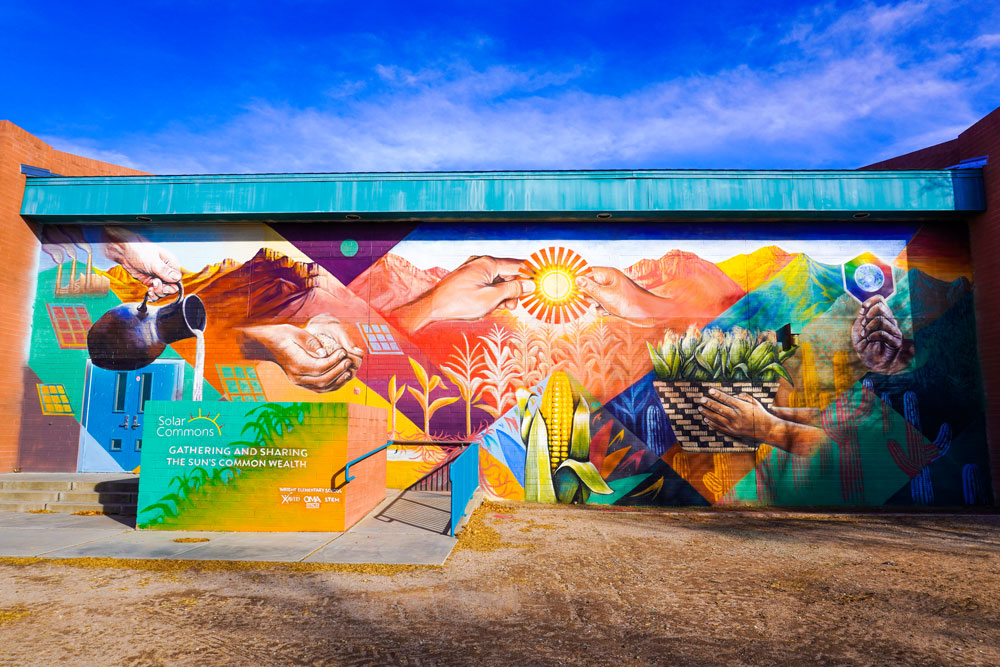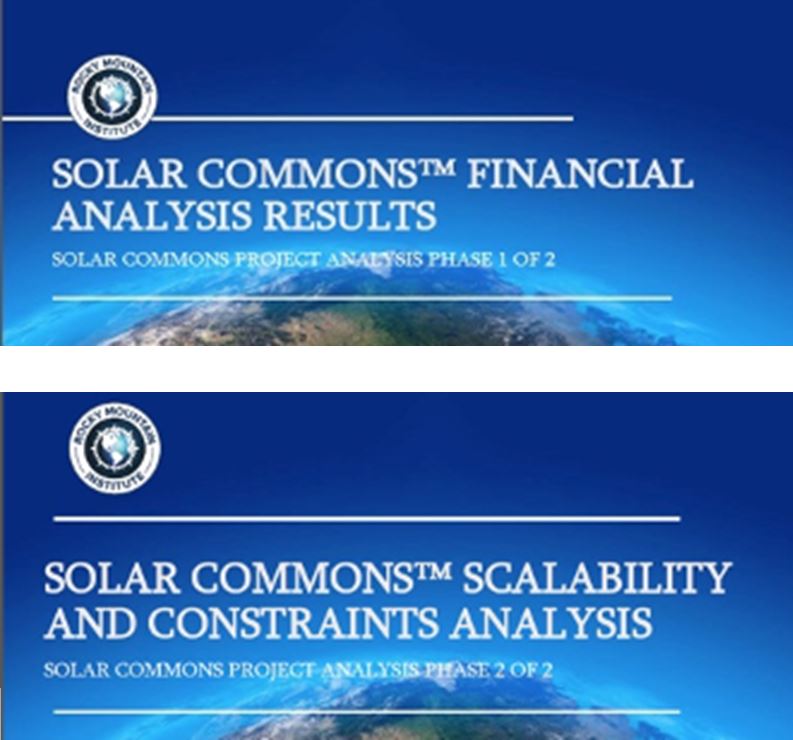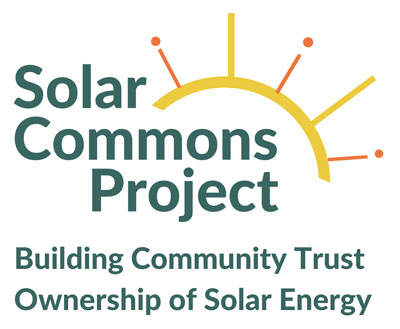
The Solar Commons Project is a community-engaged, multi-disciplinary research project. We apply the Solar Commons Model of low-income community trust ownership in Living Labs with community partners. Together we are co-creating and testing the legal and digital dashboard tools that empower community partners to use solar technology to create a twenty-year, peer-governed revenue stream to support their long-term community development work. Solar Commons are transparent, trustworthy community economy tools built to gather and share the sun’s common wealth. Over the coming decade of our urgent energy transition, Solar Commons researchers will make these robust legal and digital tools freely useable for regenerative, reparative community economies.
Value and Scalability Studies

The Solar Commons Project embeds solar technology in social and ecological relationships that support equitable local livelihoods for low-income communities in rural and urban regions. The Rocky Mountain Institute (RMI) analyzed the capacity of the Solar Commons Model to iterate through donations in the US over the next ten years. RMI saw the sweet spot for a Solar Commons array to be 500kW. That size would provide between $100,000 and $70,000 (depending on the region’s solar capacity and net-metering rates) a year for over twenty years to each locally governed community trust fund. Over ten years, RMI found that Solar Commons would produce a positive net present value to donors as it proliferated in cities and towns across the US to achieve a minimum of 10 gigawatts.
Read the Rocky Mountain Institute’s
Solar Commons Financial Analysis Results
Solar Commons Scalability and Constraints Analysis
Research Team
The Solar Commons Project is part of the Minnesota Design Center at the College of Design at the University of Minnesota. The team is led by Prof. Kathryn Milun, a legal anthropologist, and includes partners in disciplines of law, art, architecture, engineering, economics, and computer science.
Learn more about the research team
Partners
Our partners, from hot and cold climates, work with the Solar Commons Project research team to support creation of Solar Commons legal, economic & governance tools and the Living Labs which co-create and test them. Partners include community and tribal organizations in Minnesota and Arizona as well as the University of Arizona School of Art, the international Commons Strategy Group, Minnesota/Ontario-based solar manufacturing company Heliene, Inc., the Lake Superior Living Labs Network and others.
Funders
We are grateful for the financial contributions of the US Department of Energy, the Pulliam Charitable Trust, US Green Building Council (Arizona), the Institute on the Environment at the University of Minnesota, and others.
Connect
We continue to build our network. If you would like to learn more or explore collaboration, consider subscribing to our quarterly news letter and please feel free to contact Prof. Kathryn Milun at kmilun@d.umn.edu


